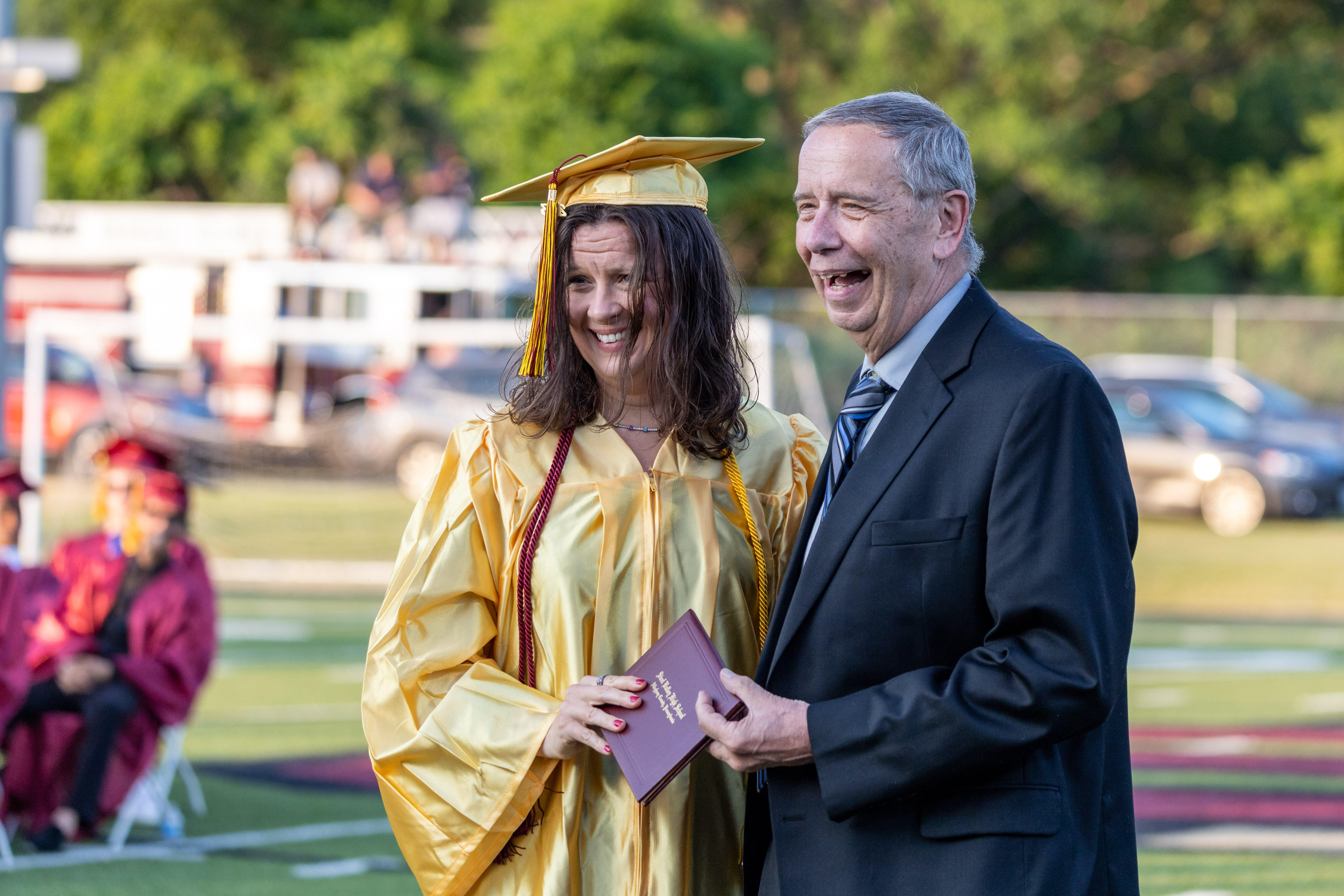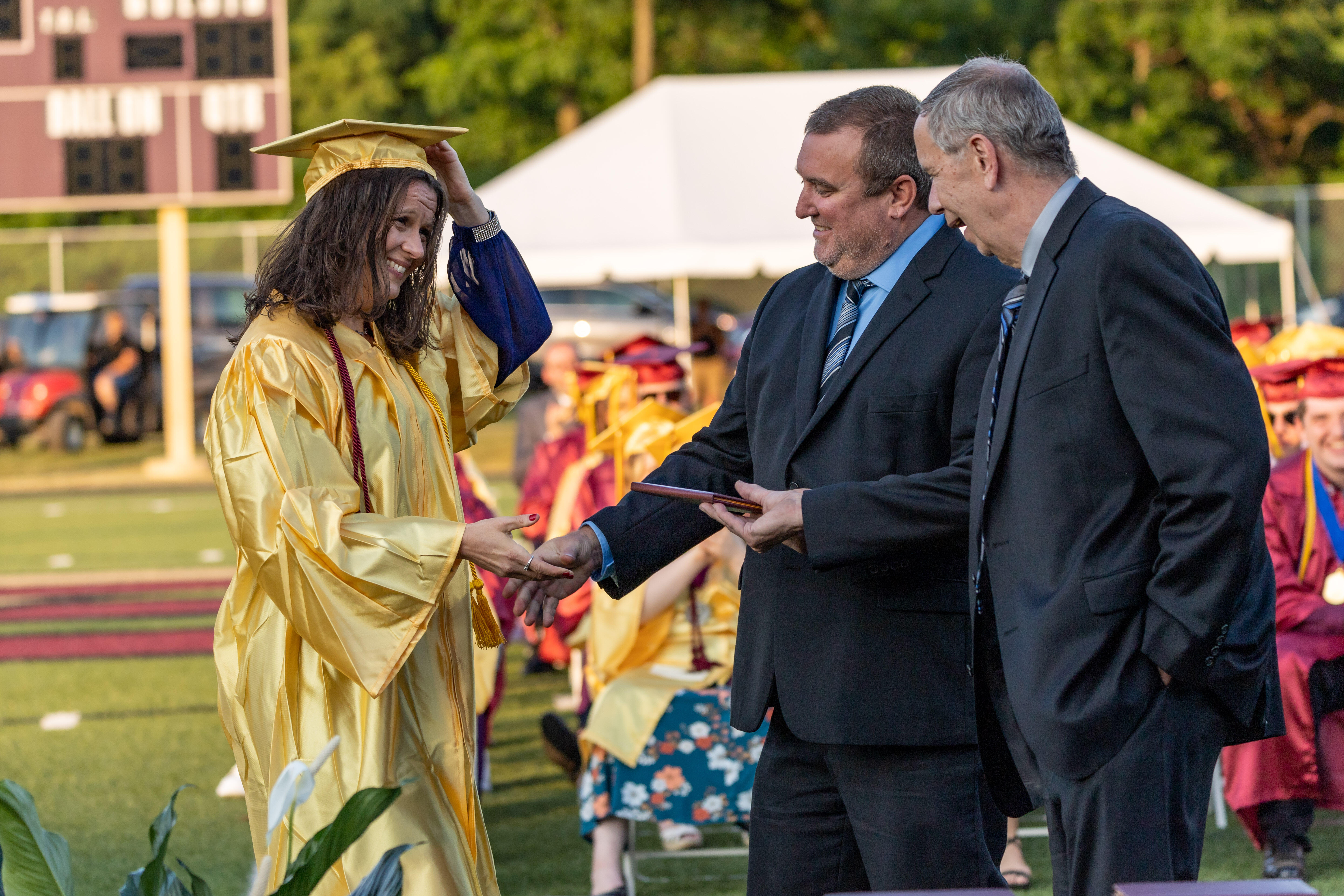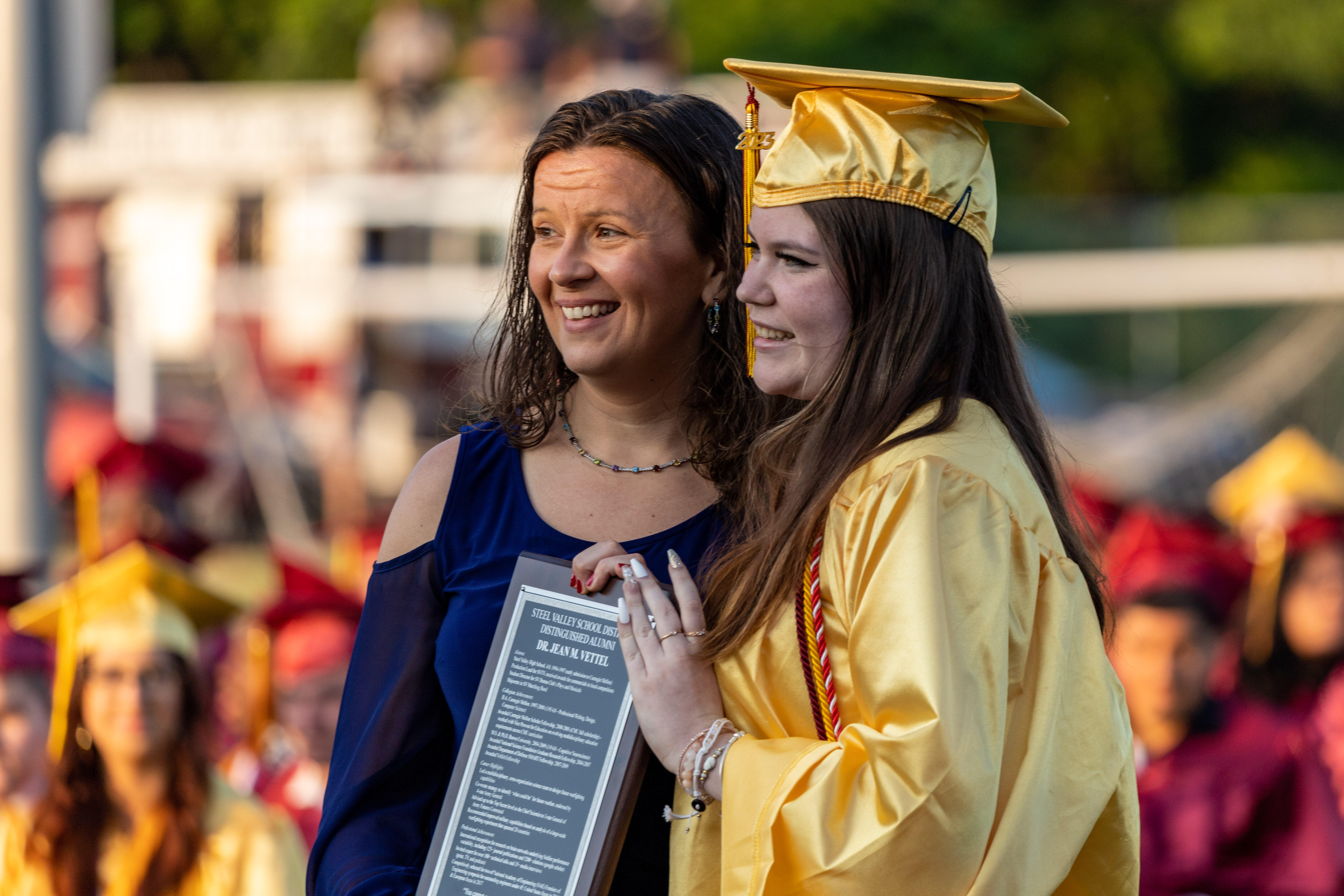
As Dr. Jean M. Vettel drove from her father’s house to Steel Valley High School in late May, a wave of memories came flooding back.
She had been back to visit the area countless times following her graduation from Carnegie Mellon University in 2001, but now she was back specifically for a Steel Valley event. As the guest speaker for Steel Valley’s Class of 2023 commencement ceremony, Dr. Vettel had her alma mater on her mind as she drove by the familiar houses in Munhall.
“It’s the memories of different places that I used to go to, or people I used to hang out with that I haven’t thought about, that were triggered by those places,” she said. “That’s the biggest emotion.”
An ambitious student, Dr. Vettel enrolled early at Carnegie Mellon University, studying professional writing with an emphasis in communication design. The early enrollment meant she didn’t attend her own commencement ceremony with the rest of the Steel Valley Class of 1998. Twenty-five years later, Steel Valley made sure she finally received her cap, gown and official diploma as part of a special presentation following her speech. It was an opportunity for her to reflect on why she took on such a stiff academic challenge as a teenager.
“I always connected most with learning and materials,” she said. “It was always easier for me to grab onto learning things and finding people who were really passionate about learning.”

She found kindred spirits – and mentors – in a handful of passionate teachers at Steel Valley. Dr. Dominick Frollini taught chemistry and fostered within Dr. Vettel a love for science.
“Chemistry was my favorite subject. I’m pretty confident I would have been a chemist in undergrad if Dr. Frollini had stayed around, because I loved his instruction,” she said. “I would have loved if I had two more years of his mentoring; I think that would have shaped my trajectory.”
She found a similar connection with English teacher and theater advisor Mr. Michael Altman.
“When teachers are really able to individualize the extra assignments that they give to students, I think that helps the students better explore what their minds are already thinking about and wanting to know, rather than being sort of locked in on a timeline of the way that information is presented otherwise,” she said.
Her passion for learning led to desire to find answers to some key questions: How do we communicate? How do we solve problems? She explored writing, computer science and design at Carnegie Mellon to try to understand how we shape knowledge.
“I eventually figured out that what I actually wanted to know was how people consume that information, which means what do brains do?” she said. “Because I had not done a single neuroscience class in undergrad, I needed to get a job to train me. So, I sought out the job at Washington University in St. Louis in order to learn how to do neuroscience and also figure out if I actually liked it.”

While managing a lab in St. Louis, she discovered she loved neuroscience. Through a series of fellowships, she earned her master’s degree and doctorate in cognitive neuroscience from Brown University. One of the fellowships was through the Department of Defense, setting her on a path to her current position as the Chief Scientist for Futures and Concepts Center at Army Futures Command in Austin, Texas.
She has been published in over 125 journals and currently advises a three-star general on the strategic efforts and technological advancements necessary to compete against future adversaries. Her neuroscience research focused on how physiological signals and brain functions might determine the tasks and roles best suited for individual service members.
“The big debate within the assignment of folks coming into the Army is what military operational specialty they have,” she said. “Is what you’re good at a skill or is it trainable? Can you train a leader or are you born a leader?”
It’s a field that requires multidisciplinary expertise and that draws on the early stages of her studies. The skills she developed as an undergrad studying writing and communication design at Carnegie Mellon are now critical to detailing the results of her research in peer-reviewed journals and in reports to her superiors.
Everything is interconnected.
“To me, if I didn’t have the three different areas I had in undergrad, I wouldn’t have a leg under me for what I needed to do in neuroscience,” she said.

.png)
.png?mask=1)